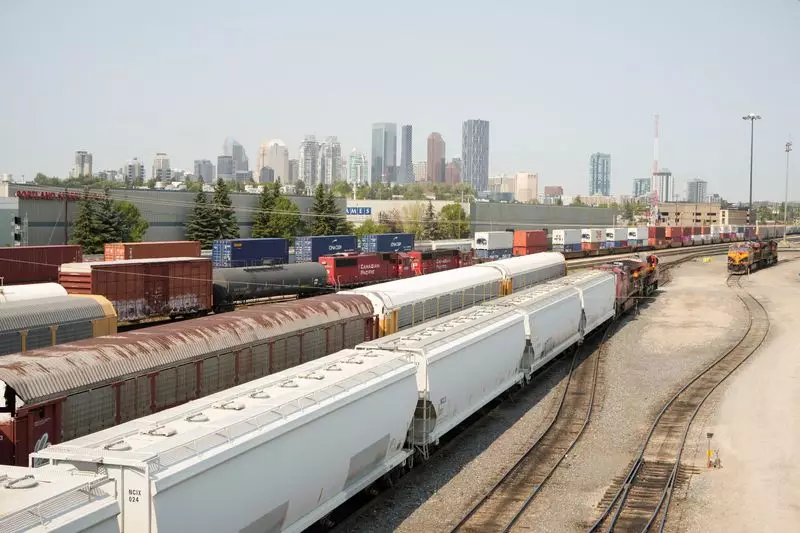In recent news, the Canada Industrial Relations Board has ordered a halt to work stoppages at the country’s largest railways, Canadian National Railway (CNR) and Canadian Pacific (CPKC) Kansas City, to put an end to the unprecedented service disruption. This decision comes after Canada requested the intervention of the labor tribunal to resolve an impasse between the more than 9,000 Teamsters members and the railway companies. The ongoing labor disputes have raised concerns about the potential economic damage that could be inflicted on Canada’s export-driven economy.
The Impact on Workers’ Rights
The Teamsters have expressed their discontent with the board’s decision, claiming that workers’ rights have been significantly diminished. They plan to appeal the ruling in federal court, highlighting the contentious nature of the labor disputes at CN and CPKC. The decision to halt work stoppages has further exacerbated the tensions between labor unions and the railway companies, setting a precedent for future negotiations in the industry.
Government Intervention and Binding Arbitration
The Canadian Labour Minister, Steven MacKinnon, has voiced his expectations for railway operations to resume promptly. The board’s decision not only ends the stoppages but also imposes binding arbitration on the parties to reach new agreements. This move aims to ensure that the existing contracts are continued until new deals are reached, effectively mitigating the disruption caused by the labor disputes.
The disruption in railway operations could have far-reaching consequences for various sectors of the economy, particularly those reliant on seamless transportation of goods. The Western Grain Elevator Association and the U.S. Soy Transportation Coalition have highlighted the importance of resolving the disputes to prevent further economic harm. The potential repercussions of the work stoppages underscore the vulnerabilities of Canada’s export-driven economy and the need for swift resolutions in labor negotiations.
The conflicts between the Teamsters union and the railway companies reveal underlying issues such as working conditions, pay, scheduling, and shift duration. The differences in expectations regarding work hours and contract terms have led to a standoff that has disrupted railway operations and threatened the livelihoods of workers and businesses. The challenges faced by both parties underscore the complexities of labor relations in the transportation industry.
The recent labor disputes at CN and CPKC have highlighted the fragility of Canada’s railway system and its implications for the economy. The government’s intervention and the board’s decision to halt work stoppages and impose binding arbitration signify a critical juncture in resolving the conflicts between labor unions and railway companies. The impact of the disruptions on supply chains, workers, and businesses underscores the need for effective negotiations and long-term solutions to prevent future service disruptions. Ultimately, the resolution of the labor disputes will be crucial in ensuring the stability and efficiency of Canada’s transportation network and its vital role in supporting the country’s economy.

